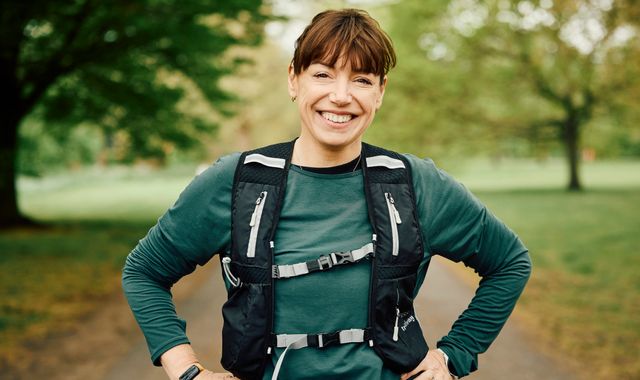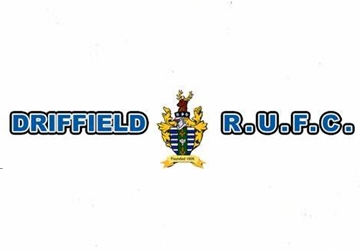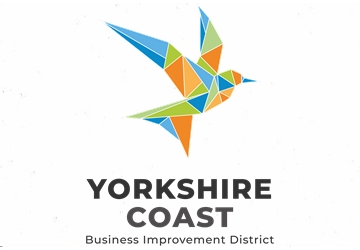I used to say I was never going to attempt to run a marathon: too hard, too long, too much training. But later this week, I am going to join 56,000 others and run the London Marathon.
It is honestly something I never thought I would do. I took up running in my 30s, somewhere between quitting smoking and having my children. I am not a natural long-distance runner. I am neither long nor lean. At school, I was better in a sprint than cross country. But struggling to breathe as you try to run a couple of kilometres is a great motivator not to pick up a Marlboro light again. So, I persevered and in 2017 ran my first half marathon.
Since then, I have run another five half marathons. Every time I crossed the finish line, I did so in wonderment that I’d run that far and completed the race, followed by utter bafflement as to why anyone would want to put themselves through running that distance all over again. I was never going to run a marathon.
But then last summer, my dearest friend Laura died from ovarian cancer after a two-year illness. She was just 48 years old, our birthdays just six days apart. Her death was absolutely devastating for her husband and her two sons, her family and friends.
She died on June 17 in the middle of the general election campaign. I was in between presenting the Sky News Battle for No 10 election show – it was the last thing Laura watched on television – and preparing for the overnight election results show.
Laura had been seriously ill for a number of weeks, but her death was quite sudden. I found myself reeling with grief, but I had to keep going, so that’s what I did.
When I came out of the other side of that election and contemplated life without Laura, well, it was like staring into a massive black hole.
We called Laura our North Star because she was the doer and the leader. There was no one in my life as full of life and energy as Laura. She was irrepressible, infectious and very funny. She filled every room she entered, every conversation she joined, every endeavour she began.
I’m sure there will be many of you out there who have lost someone you deeply love who can relate to this – the desolation and loneliness you feel in those days and months afterwards as you try to come to terms with their absence from your daily life.
I know what Laura would have said, she’d have told me to get on with it and soon after her funeral, I quietly decided to run the London Marathon. It was my attempt to “get on with it” and in the process do something positive in Laura’s memory by raising money for the North London Hospice, who cared for her with such attention and empathy during the final stages of her life.
So this is how I went from never ever running a marathon to attempting the world’s biggest race this week and I am not doing it alone: when I told my friend Esme Wren about it – we did our first half marathon together back in 2017 – she signed up too, so we’ve been on the journey together, which has make it all a little less daunting and a little more doable.
Because marathon training – and the prospect of running for 26.2 miles – is full on, physically and mentally. For me it has involved running three times a week for 16 weeks, I have managed most of them running over 220 miles (that’s over 350km) in that time.
One is an interval run, in which you run very fast in short bursts, an easy run and then a long run. Between trying to fit in the runs, the family and being Sky News’ political editor with a very unpredictable schedule and frequent trips abroad, I have been – forgive the pun – run ragged.
Marathon training is just really time-intensive and, as BBC news presenter and runner extraordinaire Sophie Raworth told me – one massive upside of marathon training is the gang you become part of – there are no short-cuts when it comes to marathon training. You have to put in the miles, when it’s cold and dark and raining and you’d rather be doing anything else.
There was one occasion in early February when the only time I could do my long run – at this point an 8-miler – was on a Friday afternoon at 4pm. I ran down the canal path, first towards the Olympic Park in Stratford, before turning off to pick up Regents Canal towards Islington, went the wrong way and found myself lost on a deserted canal path, in the dark, being lashed by the driving rain.
I decided that this was a very bad idea and came off the canal to find I’d somehow got myself to Stepney Green Tube station. Like a modern-day Dick Whittington, I followed the City of London’s skyline to make my way home, picking up the train home from Liverpool Street (and a bottle of wine to celebrate my survival).
There is also the camaraderie. Tom Larkin, one of our brilliant producers at Sky News and a super runner, has offered all sorts of advice, from which gels to use – you take a gel every few miles into the race to refuel – to carb loading before the race.
He also pointed out to me when I was pondering why I got stomach cramping on my first 16 miler, that trying to run that far on an empty stomach lined by just an espresso was, well, suboptimal to say the least.
Sophie Raworth has been absolutely lovely and given me tonnes of advice too, from showing me great canal loops (and helping me not get lost) to giving me advice on which trainers to try.
One famous actor explained to me why I should absolutely keep to my pace and resist the adrenaline urge to go too fast at the start (his horror story about crippling lactic acid build-up in his legs at mile 20 was truly terrifying).
There is also the sheer admiration you develop for those people you know who run marathons. One former senior Labour adviser revealed to me he had run a dozen marathons when I told him of my own attempt.
I was so impressed by this that I told everyone I could about it whenever he was in my vicinity. Eventually, realising he was probably finding it a bit embarrassing, I stopped going on about it. But 12 marathons!
There are also politicians who have shared funny stories. Lord Vaizey, who raised £18,000 for charity when he ran the London Marathon in 2021, recounted how, somewhere in the depths of the race as he struggled on with an injury and a big dose of fatigue, he saw a small child pointing at him and shouting Mr Potato Head.
Ed Vaizey was rather put out by it: “I thought, who’s he calling Mr Potato Head? I don’t look like Mr Potato Head.”
Shortly afterwards, Ed was overtaken by a runner dressed up as Mr Potato Head.
Read more:
Four mistakes to avoid if you’re running the London Marathon
How the London Marathon is seeking to ‘change the face of running’
Then there’s the incredible generosity. I have been blown away by family, friends, colleagues, and complete strangers who have donated to the North London Hospice in Laura’s memory.
Hospice care is only partially funded by the government and the sector relies on charitable donations to keep it going, with a third of its funding coming from the NHS, while the rest is made up of donations and the hospice’s 17 charity shops.
Over 200 people have donated more than £11,500 to our marathon efforts. It has literally been rocket fuel in my trainers.
Too long, too hard, too much training: preparing for the marathon has felt like all of these things at different points in the past four months. But it has also been rewarding and enriching, as I achieved things I didn’t think I could and found a lovely camaraderie with fellow runners along the way.
And as for the grief, this marathon has become more than just a just a way of getting on with it, by literally putting one foot in front of the other: It has also become, through pounding the canal paths where Laura and I once walked, to the fundraising and conversations I’ve had with her family and friends about it, a way of celebrating and remembering Laura.
So, wish me luck on Sunday and if you see me running/shuffling past, give me a wave.
To follow Beth’s journey to the finish line, visit her Instagram page: https://www.instagram.com/bethrigbysky/






























